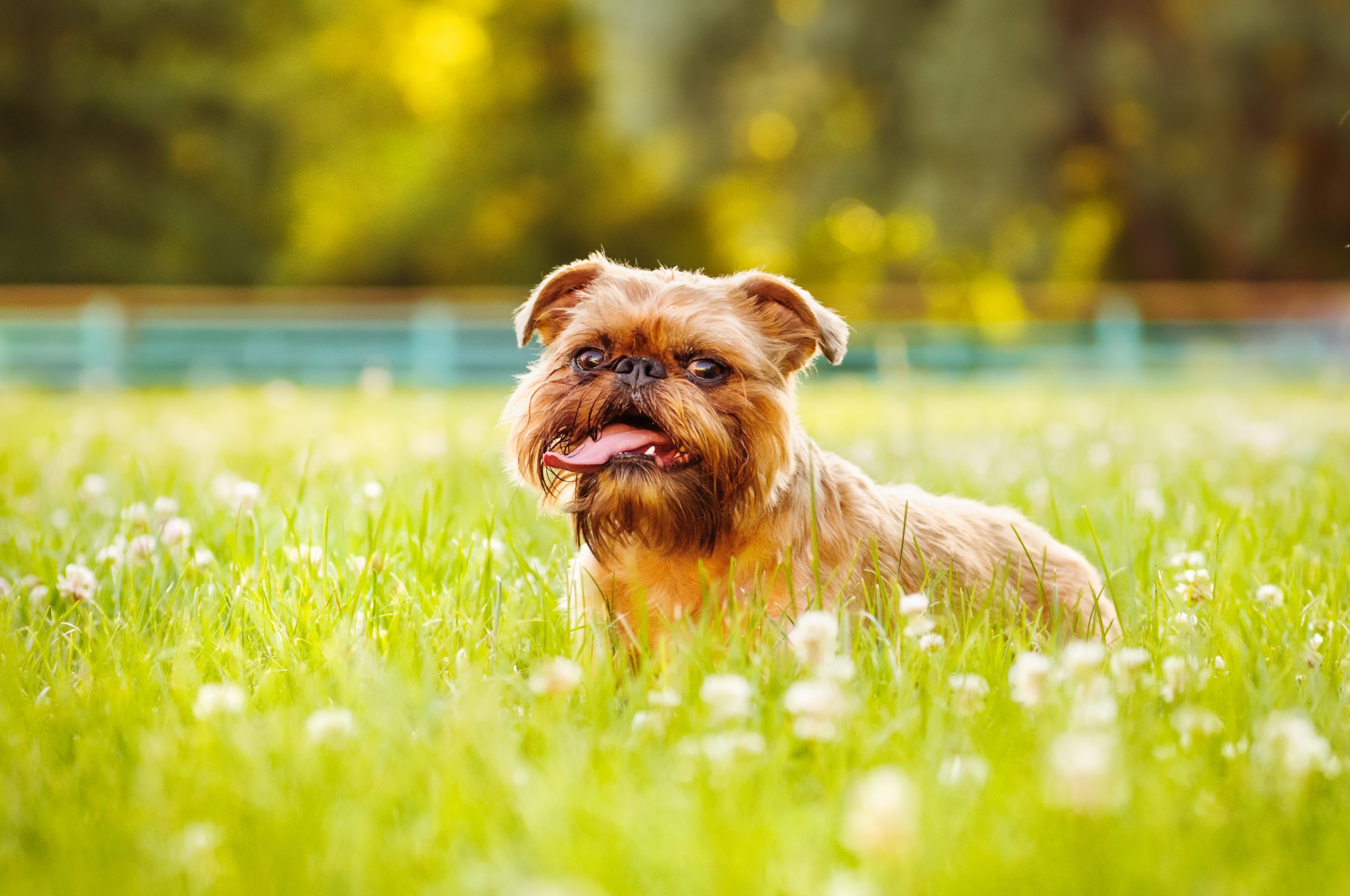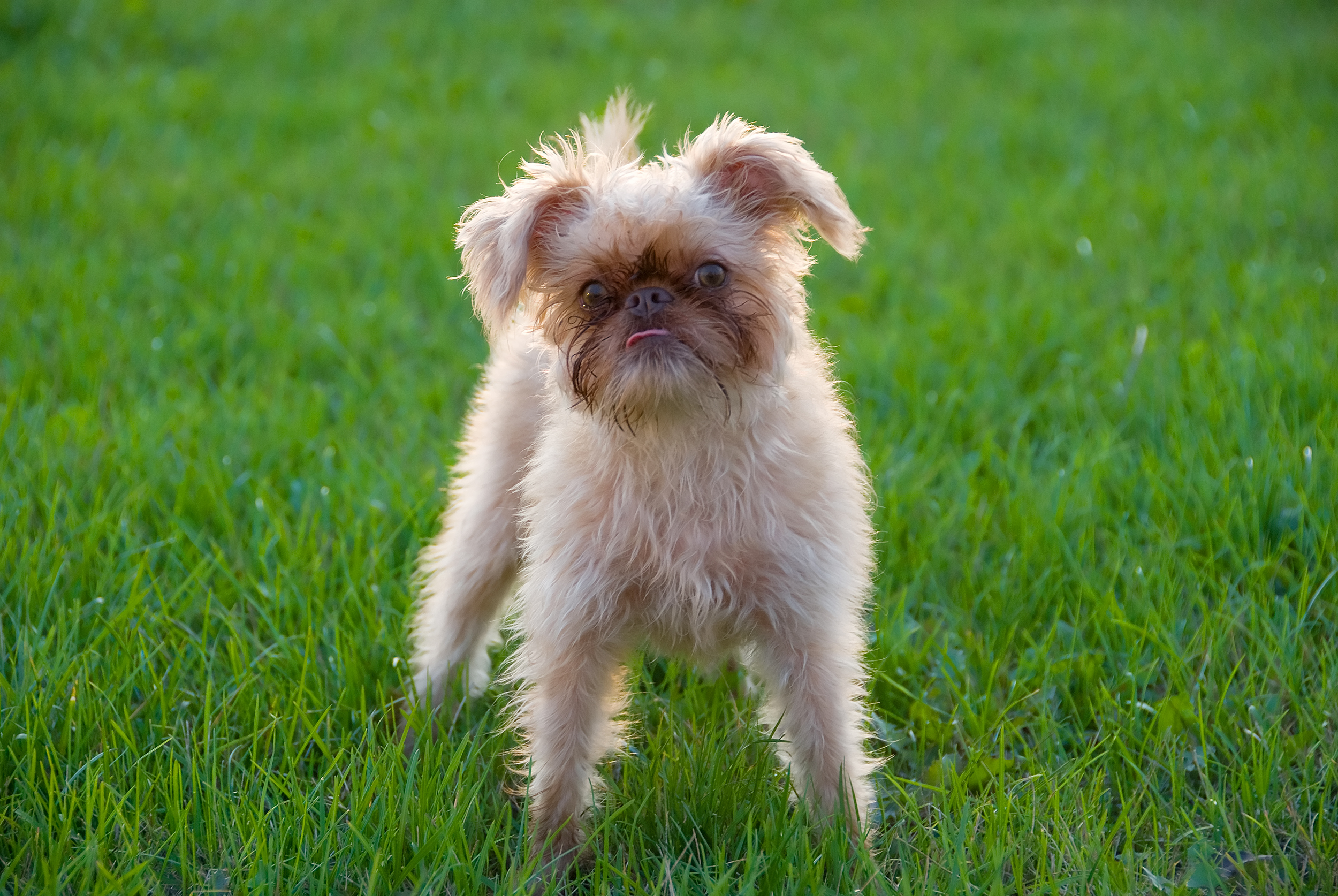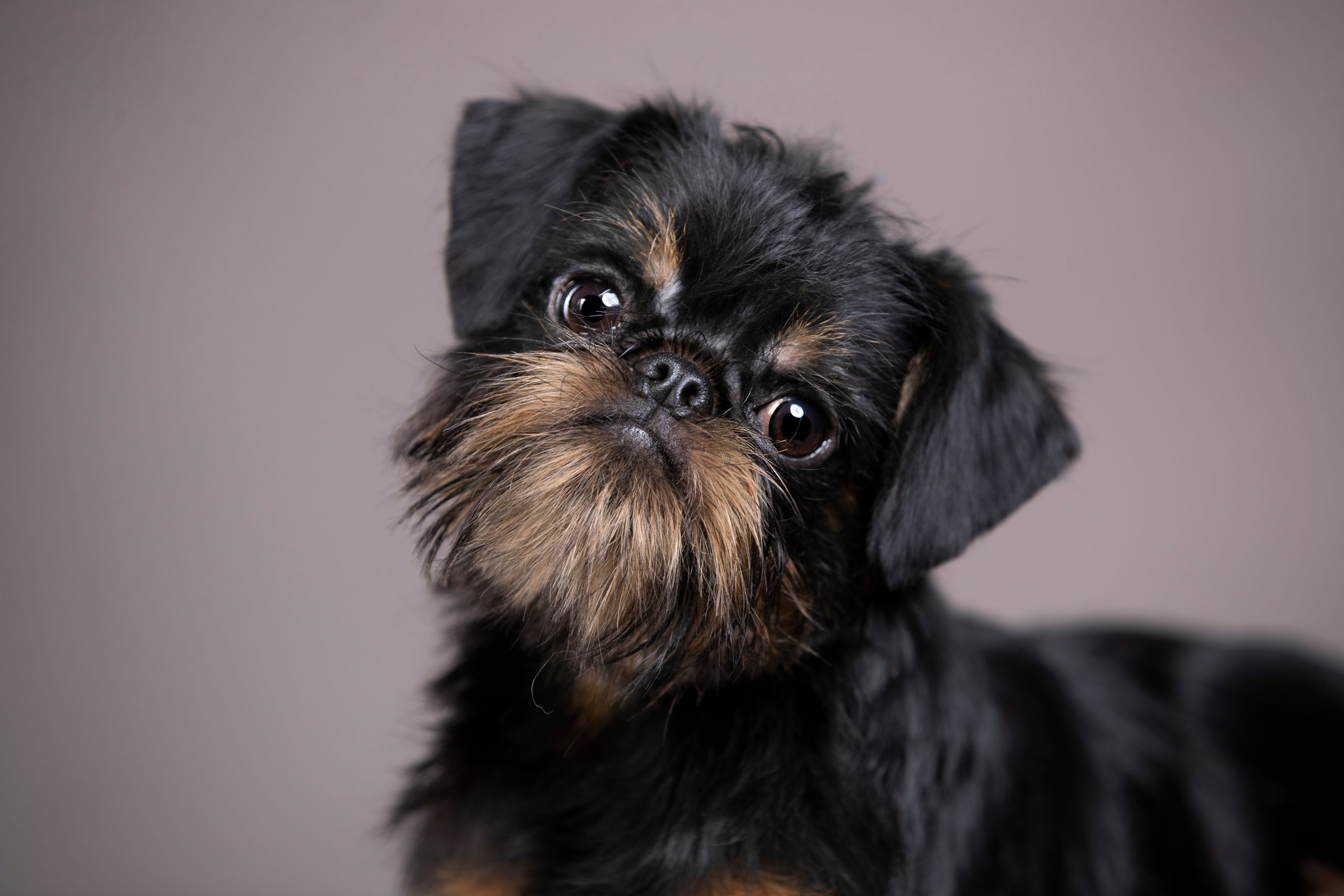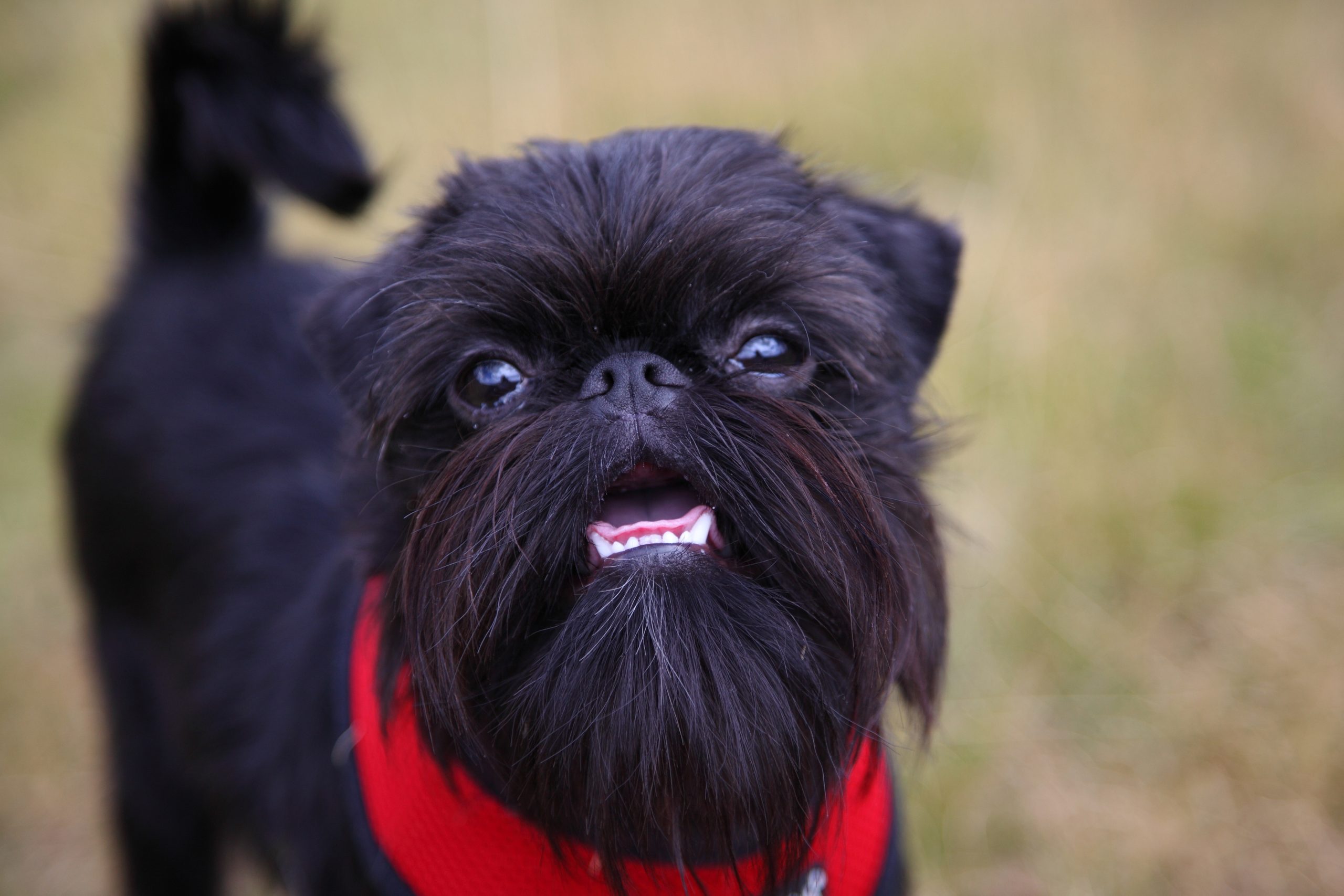Brussels Griffon
No products found which match your selection.
Shelter Dog Meal Donation Count:
No products found which match your selection.
The Brussels Griffon is a small, charming breed known for its distinctive face, affectionate nature, and spirited personality. They are intelligent dogs that form strong bonds with their owners, thriving in environments where they can be part of their daily activities. While they may present training challenges due to their independent streak, their eagerness to be involved and their loyalty make them endearing companions. Their adaptability makes them well-suited for apartment living, though they tend to be vocal. Regular grooming, especially for the rough-coated variety, and attention to their social and exercise needs can ensure this engaging little breed’s happy, healthy life.
The Brussels Griffon is known for its confident and alert demeanor. Despite their small size, they have a big personality and are known for being quite affectionate with their family members.

Originally from Brussels, Belgium, this breed was developed from the Griffon d’Ecurie, a type of Belgian street dog, and the Affenpinscher. Initially bred to hunt and kill rats, they eventually became famous as companions for cab drivers in the city.




Prone to heat intolerance, dental issues, and respiratory problems. Regular health check-ups are essential.
The rough-coated variety requires regular brushing and occasional trimming. The smooth-coated variety needs less frequent grooming. Regular nail trimming, ear cleaning, and dental care are important.
Daily walks and play sessions to meet their moderate energy levels. Enjoy interactive games and mental stimulation.
Intelligent but can show stubbornness. Positive reinforcement and consistency are key in training. Early socialization is essential to manage their wary nature with strangers.
A balanced diet is suitable for small-breed dogs. Be cautious of overfeeding as they can gain weight quickly.
Caring for a Brussels Griffon involves understanding their unique personality and needs. They thrive in environments where they receive ample affection and mental stimulation. Regular veterinary care, proper nutrition, and consistent grooming are vital to keeping them healthy and happy. With the proper care, Brussels Griffons make delightful, loving companions.
The Brussels Griffon, a charming and unique toy breed, has specific health concerns that owners should know. Regular veterinary care and awareness of these issues can help ensure your pet's long, healthy life.
Understanding these common health issues and adhering to the recommended tests and preventive care guidelines can help maintain the health and happiness of a Brussels Griffon. Collaboration with a veterinarian is crucial for developing a health care plan tailored to your dog's needs.
The iHeartDogs Free Rx Discount Card Program is a pet prescription discount card that can help you save money on your furry friend’s medications. The card is free to sign up for, and you can use it at participating pharmacies nationwide. To use the free program, simply show the card to your pharmacist when you pick up your pet’s prescription. The pharmacist will then scan the card, and you will receive a discount on the price of the medication.LEARN MORE
Caring for a Brussels Griffon involves various expenses that can vary depending on your location, the dog’s age and health, and your personal choices regarding care. Here’s a breakdown of typical costs:
Total Estimated Annual Cost:
$3100 - $7700
It's important to note that these figures are estimates and can vary. Also, the first year of owning a dog can be more expensive due to one-time costs like spaying/neutering, initial vaccinations, and training. Regular budgeting for your dog's needs and an emergency fund for unforeseen costs are essential for responsible pet ownership.